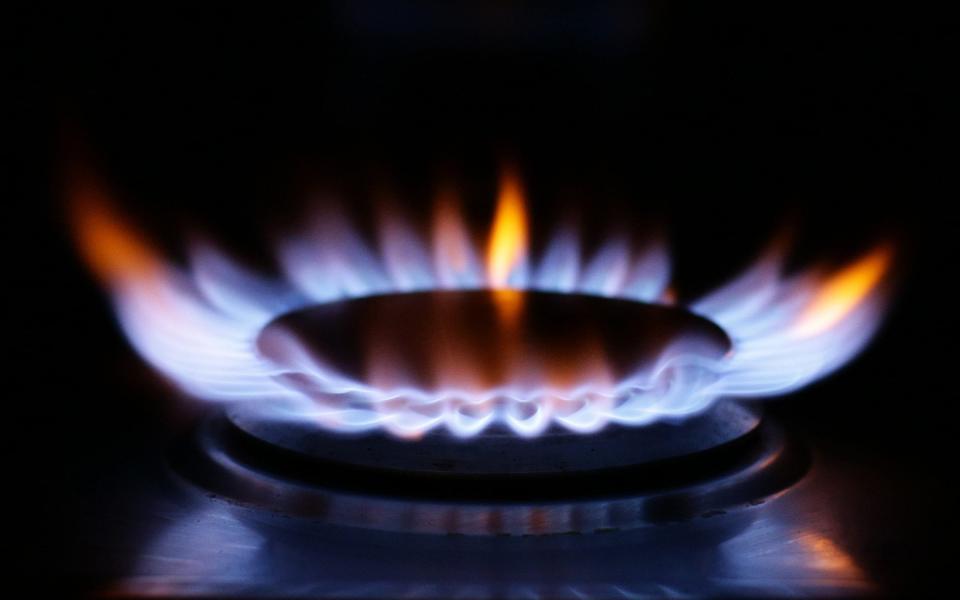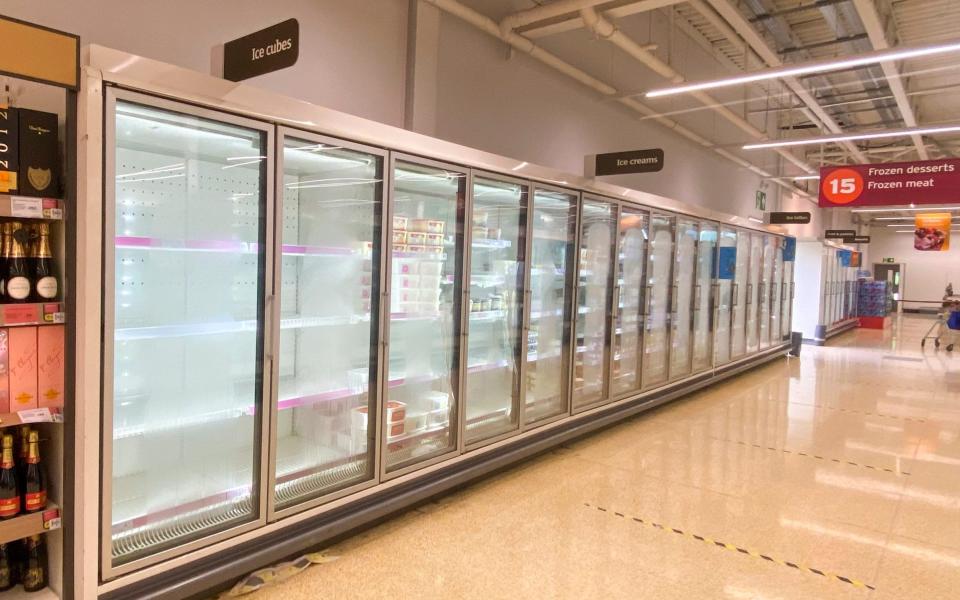Government plans gas rescue package as a million families face energy bill price hike

Ministers are preparing emergency support measures to tackle the mounting gas crisis as up to a million families face an energy bill price hike.
Energy companies are asking for a financial crisis-style government bailout, as four UK suppliers teeter on the brink of collapse following a surge in the wholesale price of natural gas across Europe.
On Sunday night, Boris Johnson did not rule out the current gas shortage lasting for months as he blamed the problem on the demand boost from global economies coming out of lockdowns.
Kwasi Kwarteng, the Business Secretary, acknowledged on Sunday that it was a “worrying time” for businesses and consumers. “We are working hard to manage the impact of global gas price rises,” he said.
He will host a round table on Monday with the energy industry and consumer groups, followed by meetings across Whitehall.
On Sunday, he held crunch talks with the chief executive of energy regulator Ofgem to discuss plans to protect the market and consumers. The pair discussed steps that could be taken to help ease pressures on smaller energy providers at risk of going bust.
Energy suppliers are calling for solutions such as government loans to cover the costs of taking on a large number of customers, or the creation of a state-backed body that would manage providers that collapse in the short term, it is understood.
The latter proposal would expose the Government to potentially millions of customer accounts depending on how many suppliers go under, and how many are seen as unprofitable by those that remain in the market. However, it could relieve stress on the market in the short-term.

Multiple options are believed to be on the table. Industry sources also suggested that VAT or green levies on energy bills could be frozen or reformed to ease the burden on prices. It may be difficult to suspend green levies as the revenue raised is used to support vulnerable and low income households.
Mr Kwarteng is understood to have received the proposals and will examine a range of ideas.
Four small energy suppliers have ceased to trade in recent weeks due to the sudden increase in global gas prices.
Another four smaller firms are now on the brink of collapse, sparking fears that up to a million households will face higher bills when their custom is transferred to other companies.
The Prime Minister likened the supply crunch to everyone “putting the kettle on” when a television program ends, saying that “bottlenecks” could be seen across the world.
Mr Johnson told reporters: “Overall, as you know, the economy is now bouncing back very strongly. That’s producing its stresses and strains across the world.
“We’re experiencing bottlenecks in all kinds of things, huge stresses, as the world wakes up from Covid.
“It’s like everybody going back to put the kettle on at the end of a TV programme, you’re seeing huge stresses on the world supply systems.”
Asked whether the problems could last for months, Mr Johnson said: “It could be faster than that, it could be much faster than that.”
But he added: “I think market forces will be very, very swift in sorting it out, and we’re going to do whatever we can to help.”
Elsewhere in the Prime Minister’s briefing with journalists during his flight to New York, where he is attending the UN General Assembly, he reached for another colourful metaphor.
Mr Johnson said: “On the current supply chain squeeze, it is fundamentally caused by the global economy coming to life again: the guy ropes are pinging off Gulliver and it’s standing up, and it’s going to take a while, as it were, for the circulation to adjust.”
Separately, it emerged on Sunday night that Bulb, one of the largest challengers to the big providers, is on the hunt for an injection of new funding.
The loss-making renewable energy supplier, which has 1.7million customers, has been working on raising funds from investors and exploring the possibility of merging with a rival.
It was among the energy firms in talks over gas prices with the Business Secretary over the weekend.
Many of the vulnerable suppliers offered cheaper tariffs in order to lure in customers. When a supplier goes bust, Ofgem runs a bidding process to move customers to a new company, but there is no obligation to match a household’s previous tariff.
The rising wholesale prices of energy in recent weeks have pushed up the cost of providing new tariffs, meaning families that are transferred are likely to be hit with higher bills.
Government sources on Sunday night confirmed that the energy price cap would remain in place to provide a level of protection to consumers.
Pessimistic estimates suggest that fewer than 10 companies could be left standing by the end of the year, down from 55.
If a back-up supplier cannot immediately be found to take on the customers of a collapsed firm, Mr Kwarteng said contingency plans provide for the Government to step in and appoint a special administrator to keep the failing company afloat temporarily to ensure continuity of supply to consumers.
Fears of return to 1970s 'three-day week'
Clive Moffatt, a gas consultant and former adviser to the Government on energy security, warned prices for industry could go “through the roof”.
He warned some companies could “easily see a three-day working week” return this winter if the emergency worsens.
Energy-intensive sectors such as steel production, glass, ceramics and paper are among those most at risk from soaring energy costs. “We are working with energy-intensive industries to manage the energy cost increases,” said a government source.
Mr Kwarteng insisted on Sunday night he was “confident” that physical supply of gas could be maintained “under a wide range of scenarios”.
He met with Tony Will, global chief executive of CF Industries, a fertiliser firm that supplies up to 60 per cent of Britain’s carbon dioxide, which is crucial to meat processing, frozen food transportation and soft-drink manufacturing.
The company abruptly closed its plants in the north of England last week in response to the spiralling cost of natural gas.

Businesses have warned that dwindling supplies threaten a potential crisis within weeks, with meat disappearing from shelves in the run-up to Christmas.
The Industry body Energy UK said: “Given the unprecedented situation in the market, because of the high international gas price, it is absolutely the right thing for the Secretary of State to be meeting with industry to try to identify if more support is needed.”
The Confederation of British Industry called for ministers to step in with direct support to prevent further shutdowns.
A Bulb spokesman said: "From time to time we explore various opportunities to fund our business plans... Like everyone in the industry, we're monitoring wholesale prices and their impact on our business."

 Yahoo News
Yahoo News 